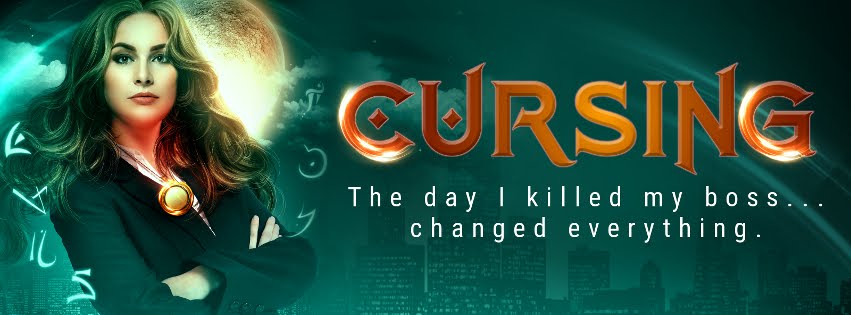I looked forward to Aquarius, which views Charles Manson's 1967 heyday through the eyes of a cynical Los Angeles cop and World War II veteran beautifully portrayed by David Duchovny.
As a '60s survivor, my own path to novel writing led out of the sex, dope & rock and roll world through the Raymond Chandler L.A. noir mystery stories. So it was not just the nostalgia of all that 1960s music that captivated me. With the mystical babble removed, Duchovny's assessment of Manson as a simple, garden-variety pimp and con artist was refreshing. Then after watching Aquarius, I found myself fluttering like a moth working a 12 step program backpedaling away from the much-promoted show that followed.
I feel both drawn toward and repelled Hannibal. It has been visually beautiful from the start, but I stopped watching during Season 1 for reasons shortly to be discussed. This season they upped the ante in the poker game of beauty.
The promos for Season 3 were stunningly evocative. One used an Edith Piaf vocal with a motorcycle trip past the Eiffel tower at night with leather-clad biker Mads Mikkelsen removing his helmet to say, "Bonjour." Announcing without further ado that the seductive bad boy had arrived. Another Hannibal trailer "Bride of Hannibal" used the 1967 hit song "Happy Together" by The Turtles to tie David Duchovny and Gillian Anderson together, even though Hannibal and Aquarius have no overlap and almost nothing in common aside the psycho killer theme and the fact that the two actors collaborated so memorably in The X-Files--which I loved.
I started out watching Hannibal in the first season because of the wonderful actors (Mikkelsen, Anderson, Hugh Dancy and Laurence Fishburne to name a few) and the sheer power of the images. That was part of the problem.
The subject matter so beautifully presented soon drove me away. Even elegantly done, I can only stand so much torture, murder and gourmet cannibalism.
So I consciously avoided the season premiere of Hannibal. I tried to distract myself watching an old rerun of Blue Bloods--a police procedural that could qualify as the "Anti-Hannibal." But I changed the channel back to Hannibal and then away again when the sadism and gore started to flow.
One phrase from the snippet I watched while channel surfing was Mikkelsen's remark to a fellow amoral fan of medieval torture devices: "Ethics becomes esthetics." I don't know. I'm struggling with this.
Beginning with the print versions, I have a troubled history with the works of Thomas Harris. I've been in discussion groups where his gory scenes are dissected frame by frame. On paper he is a skilled author, and his "Hannibal the cannibal" character is both compelling and disturbing. (Although my standard joke on the subject is that if Harris had named the character "Norman" he would have had to make him a Mormon.)
When I was picking up paperbacks carelessly I even accidentally read Harris's Red Dragon twice. I couldn't stop the second reading, even when I realized what I was doing and knew I was going to regret exposing myself to the images again. It bothered me for years.
A close friend who knows my sensibility advised me to stay away from The Silence of the Lambs. She probably remembered staying up with me till dawn after the night we watched Night of the Living Dead because I was too scared to be alone.
I did eventually read Silence of the Lambs during a period of angry depression as a kind of literary equivalent of Russian Roulette. I wouldn't do it again, but it wasn't as harrowing as I had expected. The female FBI agent as the central character helped.
One positive outcome was that I finally managed to quit Thomas Harris's print books for good. Reading the final chapter, I realized that the author had fallen in love with his psychopathic killer and lost whatever objectivity had previously existed. From that point on it was all about Hannibal, his evil genius and inevitable appetite for human flesh. To me it seemed clear that Harris saw his former ultra-villain as Everyman. Or maybe he just realized he'd struck a nerve and decided to keep hitting it. In any event, I hated it enough to stay away from future books.
The audience for this heroic psychopathic cannibal broadened immensely with Anthony Hopkins portrayal of Hannibal as the ultimate boogeyman in the movie. Eventually the killer "got the girl" and functioned as a romantic lead of sorts in the movie, Hannibal. The character's troubled youth is explored in the 2006 book and 2007 movie Hannibal Rising.
Hopkins portrayed Hannibal as the creepy, yet hypnotic predator. The television series uses charismatic actor, Mikkelsen to make the psychopathic killer seductively refined. His predator is connoisseur of unknown delights, smarter than everyone around him and infinitely more refined. It's his gourmet palate that demands human flesh and his inner sadist wants to do the butchery himself. To paraphrase Auntie Mame, his view is that life is a banquet and suckers with ethics don't know what they're missing.
I still mean to quit the TV series. Maybe the first step is to realize I am powerless in the face of dazzling artistry. Now where is that dang higher power when I need it? Maybe a candle-snuffer would do, or a TV remote and a strong dose of mental moral. Oh, no that never works, I'm doomed.

No comments:
Post a Comment